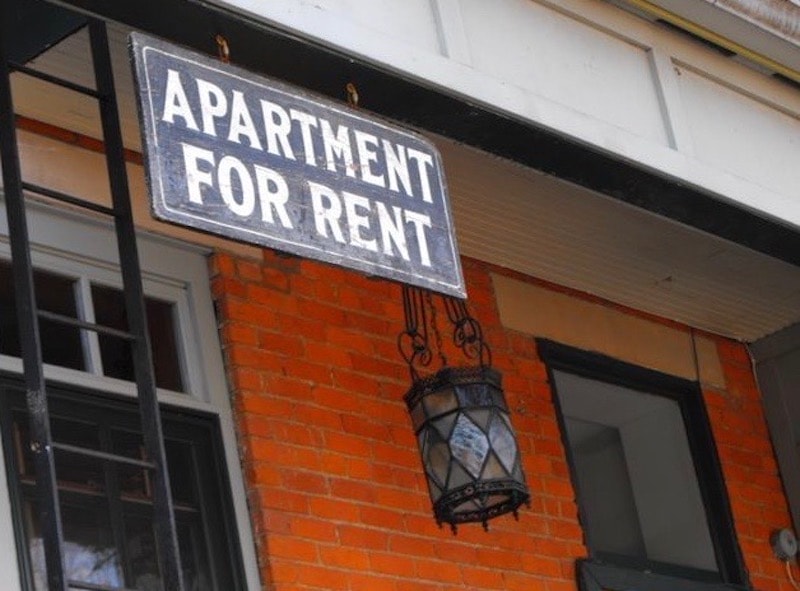City Voters Consider ‘Healthy Homes’ Apartment Inspection Proposal Next Week

Published August 1st, 2018 at 12:15 PM
(Editor note: City voters approved the Healthy Homes initiative Aug. 7 with 56 percent supporting the measure.)
By Kim Mueller
At first glance, the “Healthy Homes” initiative on the August 7 city special election ballot appears straightforward: Are voters in favor of creating a residential rental inspection program.
But Question One surprised Ann Mackey when she cast her absentee ballot.
“I had not heard one word about it,” said Mackey who rents a downtown apartment. “And I pride myself in keeping up with the news.”
The concept isn’t new.

Ann Mackey
More than 50 cities around the nation, including several in Kansas and Missouri, already have similar ordinances.
Kansas City Mayor Pro Tem Scott Wagner tried to pass a rental inspection ordinance last summer. Following property owner complaints, however, his proposal died in committee.
The issue was revived three months later by former Councilman Robert Hernandez, who represented the district including downtown from 1975 to 1991.
His successful Healthy Homes petition drive took the ordinance out of the council’s hands and put on the ballot.
Under the proposed Healthy Homes program, landlords would pay a one-time, $20 registration fee for each apartment and an annual $20 renewal fee per unit after that.
The ordinance’s bottom line is simple; everyone deserves decent housing, said Lora McDonald. Kansas City has about 200,000 renters living in 109,000 apartments, she estimated.
McDonald, the executive director of More2, a local interfaith social justice organization, lived in an apartment with mold for six months before the health department forced her landlord to fix the problem.
“People shouldn’t have to live with housing that makes them physically sick,” she said
“I couldn’t afford to just move out. Most of us are living paycheck to paycheck. The landlords have all the power.”
Opponents disagree.
Landlords are being unfairly targeted to repair a broken housing system, said Sam Alpert. He is deputy treasurer of the Housing for All political action committee formed in June to oppose the Healthy Homes ballot initiative.
“They are saying they need more money to fix it, but they want it from just one industry,” he said.
The “Healthy Homes” initiative is merely a backdoor property tax that will “drive up rents, drive down affordable housing and strangle property owners in bureaucratic red tape,” according to a flyer mailed by Housing for All to downtown residents last week.
Housing for All listed $70,646 in contributions, according to financial records filed with the Missouri Ethics Commission.
The largest donations came from Realtor organizations outside the city, including $24,000 from the National Association of Realtors in Forrest Park, Il.
Supporters of the Health Homes initiative have received $35,000 from the Health Care Foundation of Greater Kansas City.
Despite the debates, everyone agrees on one issue: Kansas City’s existing regulations do not work under the City Neighborhoods and Housing Services department.
The city housing department cannot inspect inside apartment units unless the city is invited inside the residence.
“We do not have a whole lot of leverage, especially with out-of-town landlords,” said Dalena Taylor, KCMO housing department division manager. “They just pay the $100 fine as a cost of doing business and don’t fix the violations.”
The proposed ordinance will provide that leverage, explained Naser Jouhari, manager of Kansas City Health Department’s Environmental Health Services Division.
Following a resident complaint, the health department will inspect rental properties without charging the landlord.
If the health department discovers a safety problem, health hazard or life threatening issue, the department will ask the landlord to fix it.
“If the violations are fixed and we don’t need to go back, there is no charge,” Jouhari said.
If the landlord does not fix the violation, however, the health department will charge $150 to re-inspect the initial property, according to the proposed ordinance.
Finally, the health department could close the apartment and use funds to relocate low-income residents.
“That is the nuclear option,” Jouhari said. “We do care about people so the last thing we want to do is kick people out of their homes.
Don’t miss any downtown news, sign up for our weekly CityScene KC email review here.


